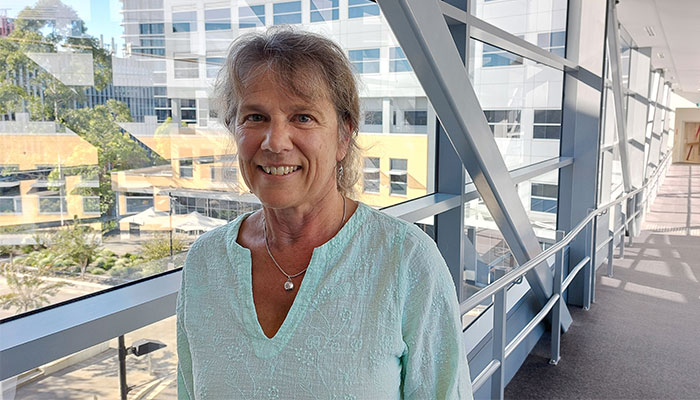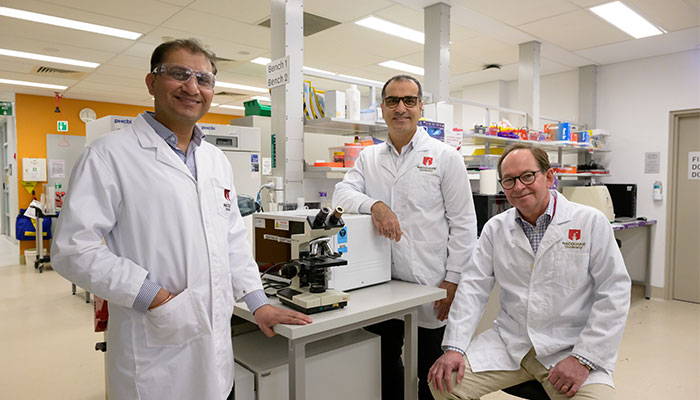Fifteen years of work on degenerative brain diseases is soon to make the giant leap from the lab to human clinical trials in the form of a potential treatment for MND, the cruel disease that robs people of the ability to control their bodies, and eventually even to breathe.
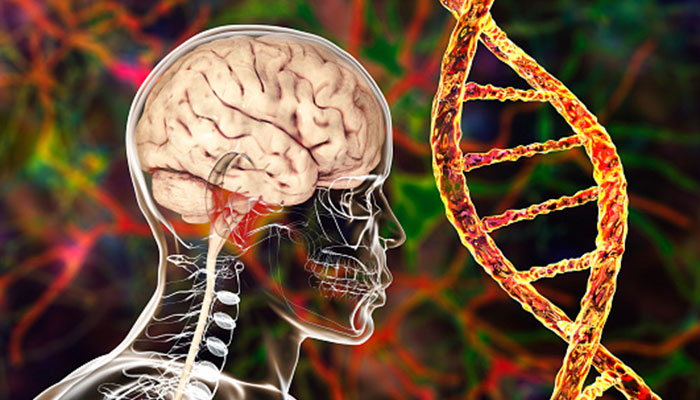
And this is just the first of three exciting discoveries by Macquarie research teams being fast-tracked for development through a University spin-off company, Celosia Therapeutics.
Celosia Therapeutics was recently revealed as the second prize winner of a coveted Australia/New Zealand competition run by Cytiva, a leading global provider of technologies and services that advance and accelerate the development and manufacture of therapeutics.
The prize gives the University access to $100,000 worth of Cytiva services, which will be used to develop and refine the commercial manufacturing process, needed to turn successful lab research into real-world treatments ready for use by patients.
Why is MND so hard to treat?
Every day, two Australians are diagnosed with MND. There is currently no cure or effective treatment.
A long-standing difficulty in treating it and similar diseases is the complexity of passing the blood/brain barrier, one of the brain’s key protective mechanisms.
Gene therapies have the potential to sidestep this problem. Similar to vaccination – or an operating system upgrade – they build on the function of targeted cells, giving them an extra blueprint to replicate a treatment.
Research from Professor Lars Ittner, Associate Professor Yazi Ke and their team at the University’s Dementia Research Centre (DRC) is the first cab off the rank for development leveraging Cytiva’s services.
The protein TDP43 has long been known as a cause of MND, clumping together in neurons and ultimately killing them. If that clumping can be reduced or prevented, the neurons can be saved.
“Yazi and the team developed a means of degrading TDP43 inside the neurons, and we have the most convincing evidence that it will work,” Professor Ittner says.
“In mice, we have proved that it treats the symptoms of MND, and some of those symptoms can be halted or even reversed.
“Once a neuron is lost, there’s nothing we can yet do to regrow it, but if it’s still holding on, we were able to restore its function.
“This means the treatment could be beneficial at every stage of the disease, whether it’s early or advanced.
Another of the team’s recent breakthroughs – the creation of ‘mini-brains’ to remove animal testing from the equation and produce research results that are more relevant to human application – will be vital in refining the gene therapy vector.
Hope for late stage Alzheimer's
Another gene therapy developed by Professor Ittner’s team, targeting the tau proteins that are associated with Alzheimer’s disease, is also part of the Celosia Therapeutics stable.
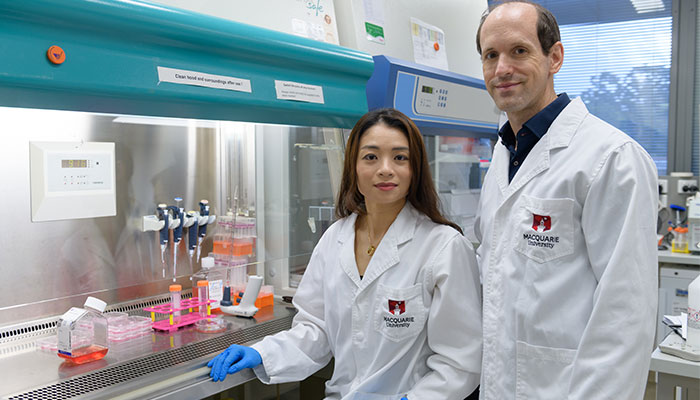
Pioneers: Exciting discoveries by Professor Lars Ittner and Associate Professor Yazi Ke and their team at the Dementia Research Centre are being fast-tracked to explore their potential to treat degenerative brain diseases.
“We are very optimistic that this treatment could bring hope even to Alzheimer’s patients in late stages of the disease,” he says.
“After just two months, mice that had advanced Alzheimer’s were able to learn tasks as quickly as a healthy mouse would.
“This therapy can’t restore lost memories, but it does allow the creation of new ones – and that is vital to being able to care for yourself on a daily basis.”
For mice, this translated to successfully completing tasks like responding to cues in return for food. For humans, it could mean remembering to take medication, knowing where the shop is, and being able to find their way home again.
"And it has the potential to be used not only in Alzheimer’s but also in uncontrolled childhood epilepsy, which causes frequent seizures and has a high mortality rate.”
Attack from a second front
A second Macquarie University research team, from the Centre for Motor Neuron Disease Research, has been attacking the problematic TDP43 protein from a different angle, and will also benefit from the Cytiva grant.
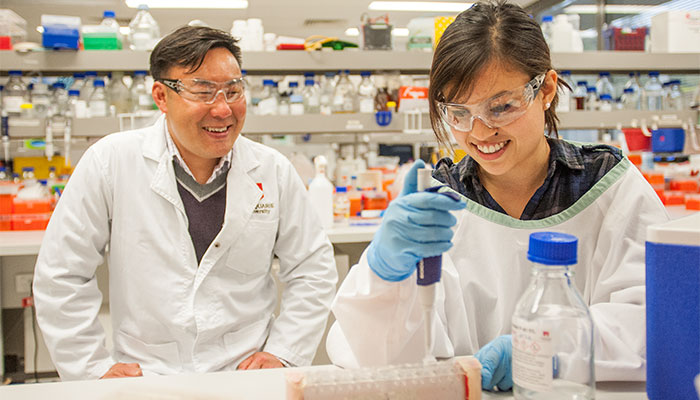
Promise: Professor Roger Chung and Dr Stephanie Rayner, pictured, have discovered a protein that may help treat MND.
This team, including Deputy Dean Research and Innovation Professor Roger Chung, Senior Lecturer Dr Albert Lee and Postdoctoral Research Fellow Dr Stephanie Rayner, identified a way to force the body to breakdown TDP43 using another of its naturally occurring proteins.
It was Dr Lee and Dr Rayner who made the discovery, and they recently published a paper on the subject.
“We’ve found that the common protein cyclin F can ‘tag’ TDP43 for recycling and breakdown,” Dr Rayner says.
“As a gene therapy treatment, the neurons will receive a blueprint to produce the correct version of cyclin F to help recycle TDP43, thereby preventing TDP43 from clumping. This can help in pausing the progression of the disease.”
Depending on its form, cyclin F can be saint or sinner, making it ironic that it should turn out to hold a potential treatment for MND.
Six years ago, a team led by Professor Ian Blair and Dr Kelly Williams in the Centre for Motor Neuron Disease Research discovered a mutated version caused defective tagging of TDP43, marking it for retention instead of for recycling.
Development of the vector to carry these and other of Macquarie University’s gene therapy treatments is expected to take up to 18 months.
Professor Lars Ittner is Director of the Dementia Research Centre at Macquarie University
Dr Stephanie Rayner is a Postdoctoral Research Fellow in the Macquarie Medical School.


